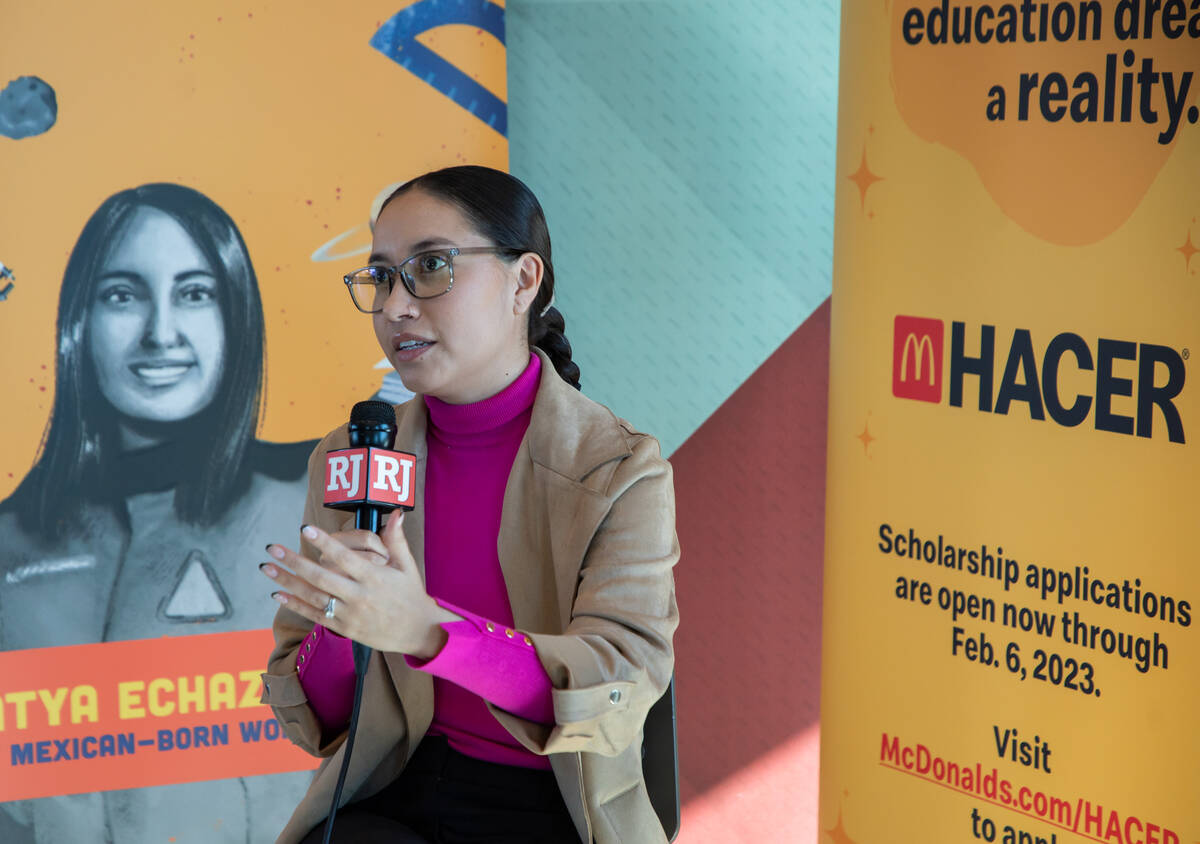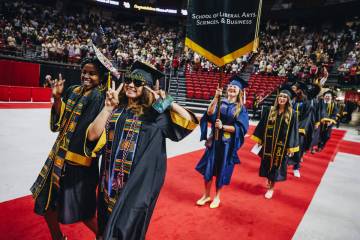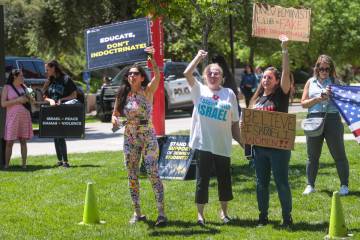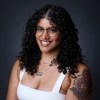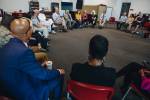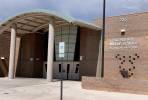First Mexican-born woman in space talks to Vegas teens about education, scholarship
At 27 years old, Katya Echazarreta has many achievements to be proud of. On May 12, she became the first Mexican-born woman to go to space. A journey that, to some, may have seemed unachievable.
She spoke with teens at Eldorado High School to encourage Latino students to pursue a higher education. In doing so, Echazarreta has partnered with McDonald’s, her former employer, to help bring awareness to the McDonald’s HACER National Scholarship. Recipients of the scholarship can earn up to $100,000 towards their education.
She said Las Vegas’ demographics were an important factor in why she decided to discuss the scholarship here.
“A lot of organizations don’t go to the schools, they don’t go to the students, and these are the students that need it the most,” she said. “These are the students that feel the most alone that feel the least supported, they don’t have anybody that they can ask.”
She wanted to show students that people in the Latino community can succeed, too.
“There’s that phrase, ‘if you can’t see it, you can’t be it,’ and I really think that although there are certain individuals that are able to do things despite all of the setbacks, still, for the general population, and just for most people in general, if they’re not really seeing anyone in their communities succeed in this type of way, then they’re going to just automatically assume ‘Well, if they couldn’t, why would I?’ And instead, our thing is, ‘Well, we could and so can you.’”
She credits her education for helping her achieve greatness.
Journey as an immigrant
The importance of getting a higher education had been instilled in Echazerreta from an early age. She has her mother to thank for that, who wanted to get an education but was unable to because her father and husband would not allow her to.
“For her, it was really important to really instill those values into her kids, but more importantly, into her daughters,” she said. “So for me, it wasn’t necessarily that I wanted to go to college for a career, it was I understood that I needed to be financially free, in order to not have to be tied to a certain person or a certain situation.”
Although she was born in Guadalajara, Jalisco in Mexico, she didn’t allow that to deter her from pursuing a higher education. Moving to the U.S. at age seven, Echazarreta had a difficult time not only not being able to speak English, but with her home life as well.
At home she witnessed the hardships her older sister had to deal with having mental and physical disabilities. At the same time, they’re younger sister was forced to skip an entire grade due to being born in September. Echazarreta saw her younger sister go from kindergarten to second grade.
“That is a very difficult thing to have to go through. Then on top of that, you have your regular responsibilities and understanding that this opportunity that you were given, you have to take advantage of it — you have to deliver. You have to live up to the sacrifices that were made for you. And that can be a lot of pressure as well as first generation,” she said.
A love for learning
Echazarreta’s desire to pursue higher education also came from her love for learning. Echazarreta has already graduated from the University of California, Los Angeles, with a bachelor’s degree in electrical engineering. Her education however doesn’t stop there, as she is currently enrolled at Johns Hopkins University to pursue a master’s degree of science in electrical and computer engineering.
“For me growing up, especially in a difficult home environment, my schooling and the things that I was learning, I understood two things about it: One is that this education is going to get me out of here, and it’s going to allow me to not have to live with this ever again,” she said. “But secondly, it’s also an escape for me. It’s a way for me to just focus on something else for a little bit.”
Learning doesn’t stop with college, though — it’s lifelong, she said.
“Just because you’re done with college doesn’t mean you can’t go back and learn something else. You could do whatever you want. I think that’s the coolest thing. And I was finding myself already going back and taking some of these classes on my own online. And so I figured, ‘OK, if I’m already doing it, I’m already learning it, I’m already doing the work, I might as well get an actual degree,’” she said.
Future plans
Echazarreta is currently working on creating a foundation to help Latino and other minority students get opportunities in the space industry.
The foundation will begin its work in Mexico, then spread throughout Latin America and eventually help students in the United States.
For many generations, Latin Americans have not had access to opportunites in space, and have felt left out, she said.
“They feel like even though they have all of these big dreams and want to contribute, that it’s kind of like a lottery system — where you are born determines whether you can actually contribute, whether you can actually work in these industries, whether you can actually even go to space,” she said. “For me, that is something that I didn’t feel comfortable with. I decided to create this organization that we’ll be announcing next year to try to kick start those opportunities for Latin America so that they can also be a part of this amazing industry.”
Contact Glivell Piloto at gpiloto@reviewjournal.com.



